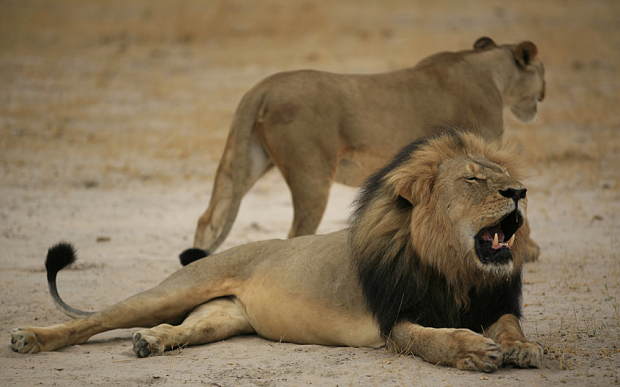Cecil the Lion: What His Death Means
Who was Cecil the Lion? Cecil was an African lion who roamed a national park in Zimbabwe. He was well liked by tourists for his distinctive mane, and he was the leader of a large pride that dominated certain areas within the park. He was a key player in maintaining environmental balance. And now that he is dead, his whole pride has potentially lost stability.
People everywhere have been in an uproar over Cecil’s death. After it was a released that Cecil’s killer was indeed a dentist from Minnesota, many people began protests outside his practice as well as started campaigns on social media. While these actions have good intentions, they are coming almost too late for the lions of Africa.

The fact is today there are only around 20,000 lions left in the wild. Wild lions, like Cecil, have been hunted for trophies for many years, and this contributes greatly to their decline into threatened species status. The thrill of hunting a lion has grown to be so strong, that it has spawned its own industry. Canned hunting, which is the hunting of captive bred lions, has arisen because of the increasing demand of trophy hunts. In South Africa alone, American and European tourists kill around 1,000 canned lions every year. The lions just don’t stand a chance.
The hunting of lions, captive or otherwise, has never been fair to the lion. Take Cecil’s case for example, wild lions are often tracked using inside information, and then lured with bait into zones where they can be shot. And clean shots are not always guaranteed. Cecil is a great example of the inadequacies of the hunters that seek trophy kills. It has been reported that after Cecil was shot, he was left for almost 40 hours to suffer before the hunting party returned to finish the job. This is woefully inhumane and unethical.
Captive lions are treated with even more disrespect than those hunted in the wild. These lions are “bred for the bullet” and never stand a chance at survival. Starting from birth, lion cubs are often taken away from their mothers, affecting the health of the cub due to lack of natural milk and forcing the mother into another oestrus cycle, making her more receptive to mating. This is essentially factory farming. After the lions reach an age of maturity, and have been used as much as possible for the tourist trap of cub petting, they are released in a fenced area of land for a very short period of time. Some lions have less than a week of this so-called ‘freedom’ until they are hunted. Canned hunts have a reported success rate of 99.2%. The hunting guides, both in the wild and in captive situations, will engineer the hunt, and this causes the lions to always be at a disadvantage.
So why did Cecil have to die? Cecil’s death, while a tragedy, is also doing some good for the other lions in Africa that are always under the threat of being killed for a trophy. People everywhere are starting to understand the damage the trophy hunting industry is causing. With the spotlight finally on the issue, the United States government has begun investigation into Cecil’s death to see if any US laws were broken during the hunt. Even the UN has taken a stand against the practice by adopting a resolution that combats illegal wildlife trafficking. When addressing the General Assembly, Harald Braun, the permanent representative of Germany to the UN, cited many instances of poaching and illegal hunts that have been taking place unabated for years. He asserted that;
“the time to act is now, no one country, region, or agency working alone will be able to succeed.”
What Cecil’s death has done is finally brought the issues involving Africa’s precious wildlife into the public eye. For the first time in a while, many people have become receptive to the need for change and support in the protection strategies for the cherished wildlife all over the world. Maybe through Cecil’s death we can finally further our efforts not only to help the lions, but also the elephants, rhinos, pangolins, and many other endangered species left on this planet. Professor David Macdonald, founder of Oxford’s Wildlife Conservation Research Unit, said aptly “the attention on the single animal might be a sort of barometer of people’s concern.” Through the protests, the outrage, and the spark of activity on social media, I think we can now say we have people’s attention. We have their concern. Now it is our job not to lose it. It is our job to focus it on saving the lions.
-Miranda Gali

